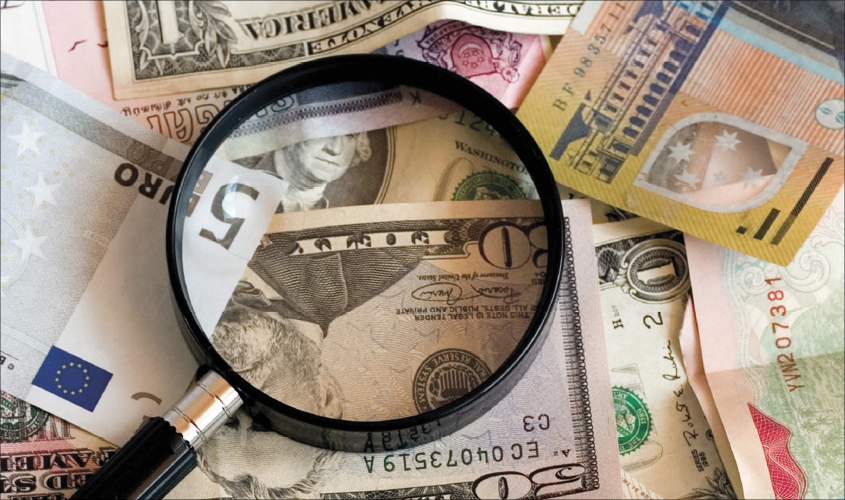There has been the suspicion that the vast percentage of wealth came from dirty money, which was cleaned en route to London and used to purchase property.
Walking around cosmopolitan Central London where I live, it’s unusual to hear English spoken. Sometimes I feel like a member of an ethnic minority in my own city. Over the past 30 years, London has been flooded with wealthy foreigners who have bought the most expensive properties and drive the poshest cars.
“Germany is good for savers; London is for spenders” goes the old saying. A short stroll along the smart streets of Mayfair will confirm this, where the most common language seems to be Russian. It’s now almost 27 years since the collapse of the Soviet Union and some estimates indicate that somewhere in excess of 200,000 Russians now call London their home. London has been re-named Londongrad, or Moscow-on-the Thames. An entire sub-culture has been formed, complete with well-established schools, speciality stores and restaurants. I counted four Russian-language newspapers and if you glance through the glossy Russian magazines, the flashy adverts will indicate the wealth of their anticipated readers. Bling is everywhere.
So where did all this huge wealth come from? While some was perhaps genuinely earned, for many years there has been the suspicion that the vast percentage of this wealth came from dirty money, which has been “cleaned” en route to London and used to purchase property, some priced at more than £100 million. How is this money cleaned? Ruslan Milchenko, formerly with the Russian police and now head of a well-known anti-corruption agency describes the process. He is an expert on Moscow-style money laundering.
Suppose you are Russian and you obtain, say, $10 million from dubious sources, such as corruption, theft or drug dealing. It’s difficult to spend dirty money such as this without first hiding where it came from. You will need to disguise its origins so that it appears to come from a clean source, using what is now called the “Laundromat”.
First, you will need to find a banker who has dozens of companies within Russian banks. He, and it’s nearly always a “he”, will move your money from one bank to another, from one company to another, using a laptop with a bank-client program. It will finish up “cleaned” in a bank in any place in the world you choose, usually anonymously in the form of shell companies and unregistered trusts. About 2% of your money will be taken up in commission. Those on top of the cleaning pyramid are billionaires who can afford to buy many banks, which become platforms for huge money withdrawals abroad.
Nowadays in the digital era, money is commonly moved offshore through tax havens such as the Bahamas and the British Virgin Islands. The recent hacking of the Panamanian firm Mossack Fonseca revealed how its employees acted as nominee directors and shareholders, lending their signature to paperwork and bank accounts of companies over which they had no control and in this way hiding the identity of the real owners.
The amount being moved and laundered abroad has ballooned recently into the hundreds of billions. The United Nations Office on Drugs and Crime estimates the annual sum to be between 2% and 5% of global GDP, which is between $800 billion and $2 trillion. As the agency says, even the lower number underlines the seriousness of the problem governments are facing.
According to the British National Crime Agency, Britain alone launders about £90 billion each year, a figure which includes not only the proceeds of almost all serious and organised crime committed in the UK, but also the assets of corrupt politicians, public officials and criminals from overseas. It is claimed that this loot finds its way into the London housing market. Astonishingly, companies incorporated in the UK’s network of overseas tax havens own 57,000 properties in Britain, with 16,000 of these in just two London boroughs: Westminster and Kensington &Chelsea.
At long last the British authorities have started a crackdown on those who cannot account for their wealth. In January this year, Parliamentary legislation, known as the “Unexpected Wealth Orders”, came into force, which is designed to help prosecutors seize the assets of individuals if found guilty. Russian oligarchs suspected of corruption will be forced to account for their luxury lifestyles in this new crackdown on crime. This week it was reported that about 700 wealthy Russians are having their status carefully scrutinised by UK authorities.
Last February, the Kremlin business czar, Boris Titov, following discussions in London with many Russian billionaires living in the UK, claimed that they had “begged” President Putin to be allowed to return to Russia without being arrested. These included 10 oligarchs who had contacted the Kremlin asking for safe repatriation after fleeing the country many years ago to escape court proceedings. Titov claimed that the “list” was now with the President.
Yet more legislation is planned by the British government in the coming years. This is aimed to create transparency which will reveal not only the owners of overseas companies, but also those who are the beneficiaries of trusts and what assets they control.
Perhaps I shall then hear more English being spoken as I stroll around the elegant streets of London’s Mayfair, although I shall never be wealthy enough to live there. I haven’t any dirty money for the Laundromat.

